Meet Our Leadership Team
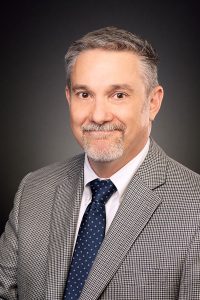
Sam Posner, PhD
Sam Posner, PhD is the Director for the Office of Science (OS). In this capacity, Dr. Posner is critical to helping ensure OS advances its strategic and programmatic priorities to support the agency’s science.
Dr. Posner previously served as the acting director of the National Center for Injury Prevention and Control where he led CDC’s innovative research and science-based programs to prevent injuries and violence and to reduce their consequences. He has also served in the National Center for Immunization and Respiratory Diseases (NCIRD) as the Principal Deputy Director. In this role, he oversaw the center’s surveillance, epidemiology, laboratory, and data science programs to expand and refine CDC’s capacity to detect, prevent, and respond to vaccine-preventable and respiratory infectious disease threats. Dr. Posner also served as the acting NCIRD director where he initiated significant strategic changes to prepare for the transition of COVID-19 emergency response activities back to their home programs.
In the COVID-19 response, Dr. Posner co-led the development of a Scientific Agenda as a guide for the implementation of scientific activities to better understand COVID transmission dynamics, risk factors for mortality, and prevention strategies. He also worked closely on the data and informatics architecture for the COVID-19 national vaccine program.
Dr. Posner joined NCIRD in 2016 as the Associate Director for Epidemiological Science and Director of the Office of Science and Integrated Programs and led the scientific review of several NCIRD programs, including the review and reframing of the Legionella program. Under his guidance, the Legionella program has grown significantly in scope and reach and now funds jurisdictions for both prevention and outbreak response.
Dr. Posner came to CDC in 1998 from the University of California, San Francisco after completing doctoral work in quantitative psychology at the University of Southern California in 1996. He first worked in the Division of Reproductive Health and then moved to the National Center for Chronic Disease Prevention, Office of the Director in 2008, where he served as Editor in Chief for the journal Preventing Chronic Disease and later Associate Director for Science. Dr. Posner is the author of more than 100 papers published in peer-reviewed journals and has written more than 15 book chapters, invited editorials, and other non–peer-reviewed contributions to the scientific literature. He is an internationally recognized expert in the fields of preconception care and multiple chronic conditions.
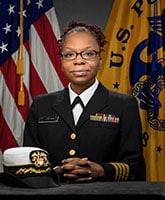
Althea Grant-Lenzy, PhD (CAPT, USPHS)
CAPT Althea Grant-Lenzy serves as the Principal Deputy Director for the Office of Science. She has more than 20 years of experience in public health. She joined CDC and the US Public Health Service in 2002 as an Epidemic Intelligence Service (EIS) Officer assigned to the Division of Reproductive Health. After completing EIS, she served as an epidemiologist in the division’s Maternal and Infant Health Branch. Dr. Grant-Lenzy then became the epidemiology and surveillance team leader in the Division of Blood Disorders in the National Center on Birth Defects and Developmental Disabilities. In 2010, Dr. Grant-Lenzy became the division’s chief of the Epidemiology and Surveillance Branch.
Dr. Grant-Lenzy served as senior advisor for science for CDC’s Deputy Director for Non-Infectious Diseases. In July 2020, she became the career management officer for the CDC’s Commissioned Corps Activity. She then went on to serve as acting deputy director of science at NCIRD. Dr. Grant-Lenzy received her undergraduate degree in biochemistry from Rutgers University and her Ph.D. in biochemistry and molecular biology from Emory University. She did postdoctoral training in cell biology at Yale University and an APHL Emerging Infectious Disease Postdoctoral Fellowship at CDC. She is a Six Sigma Black Belt.
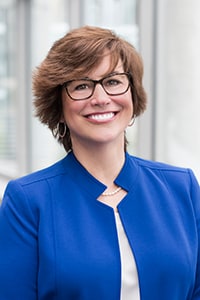
Joanne Cono, MD, ScM
Dr. Joanne Cono, MD, ScM, is the Office of Science Deputy Director for Science, CDC Scientific Integrity Official, and CDC Research Integrity Officer.
Dr. Cono has served in numerous leadership positions at CDC including Director of the OS Office of Science Quality; Senior Science Advisor in the Office of Infectious Diseases; Associate Director of Science (ADS) in the former Coordinating Office for Terrorism Preparedness and Emergency Response; ADS in the Division of Epidemiology and Surveillance of the former National Immunization Program; and Director of CDC’s Clinician Communication Program. As Senior Medical Officer in the Bioterrorism Preparedness and Response Program, National Center for Infectious Diseases, she helped lead CDC’s smallpox preparedness and vaccination activities and the epidemiological team for CDC’s response to the 2003 US mpox outbreak. Dr. Cono served as Senior Advisor for Science and Global Health in the Coordinating Center for Infectious Diseases and has completed numerous international assignments and consultancies. She has participated in numerous agencywide emergency responses including anthrax, hurricanes, earthquakes, the H1N1 influenza pandemic, Zika, Ebola, and COVID-19.
A board-certified pediatrician, Dr. Cono earned her medical degree from the State University of New York at Buffalo and completed her residency training at Children’s Hospital of Pittsburgh. She completed a fellowship in Community Pediatrics and Child Advocacy at the Albert Einstein College of Medicine and a genetic epidemiology fellowship at CDC. Dr. Cono has a Master of Science degree in Vaccine Science and International Health from the Johns Hopkins University School of Hygiene and Public Health, and specialty training in mediation, facilitation, negotiation, global diplomacy, and public engagement. Dr. Cono practiced pediatrics in the homeless shelter system of New York City (The New York Children’s Health Project) and at Children’s Healthcare of Atlanta. She was a visiting faculty member at the University of Tartu in Estonia, where she taught pediatrics and epidemiology.

Locola Hayes, MBA
Locola Hayes, MBA, is the Office of Science Deputy Director for Strategy and Implementation. In this role, Locola serves as principal advisor to the OS Director on issues concerning health protection and health equity goals management, strategic planning, evaluation, policy, and legislation. She is responsible for spearheading strategy, goals and ensuring the alignment of goals and resource allocations, and measuring, reporting, and improving performance on strategic priorities through leadership of cross-cutting office initiatives.
During her tenure at CDC, Locola has worked in various aspects of program management including strategy, management and operations, policy, and performance. Most recently, she served as the Management Official for the Office of Science, providing day-to-day oversight and management of budget, staffing, and other operational aspects of the office. Prior to joining the Office of Science, she was the Deputy Director for the Program Performance and Evaluation Office in CDC’s Office of the Associate Director for Policy and Strategy. She has also worked in several key roles including Risk Management Lead, Senior Public Health Advisor for Health Systems Reconstruction, and Deputy Director for the Ebola Affected Country Office in the CDC Center for Global Health’s Division of Global Health Protection. Locola also served as the International Task Force Deputy during the 2014 Ebola response and as Special Projects Lead and Performance Management Lead in the Office of the Associate Director for Program (now the Office of Policy, Performance, and Evaluation).
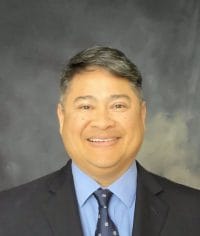
Aaron Aranas, MPH, MBA
Aaron Aranas, MPH, MBA, is the Office of Science Management Official. In this role, Aranas directs Office of Science management and operations efforts including leading the development and execution of the OS budget, managing OS extramural funding, overseeing OS recruitment and staffing actions, and providing leadership on other logistical/administrative processes.
Previously, Aaron served as the Deputy Management Officer in the National Center for HIV, Viral Hepatitis, STD and TB Prevention (NCHHSTP), and in numerous epidemiologist positions in the Center for Global Health (CGH), the Center for Surveillance, Epidemiology, and Laboratory Services (CSELS), and the National Immunization Program (NIP). Prior to joining CDC, he worked as a Senior Analyst and Programmer in the pharmaceutical and health care industries.
Aaron holds a Master’s degree in business administration from Georgia State University, a Master’s degree in public health from the University of Alabama at Birmingham, and a Bachelor of Science degree from Louisiana State University.

Alanna Moorer, MPS
Alanna Moorer, MPS is the Office of Science Associate Director for Communications. Prior to joining OS, Alanna worked in the Division of Healthcare Quality Promotion (DHQP) in CDC’s National Center for Emerging and Zoonotic Infectious Diseases (NCEZID) as the lead for the Immunization Safety Office (ISO) Communications Team. In this role, she led planning, implementation, and evaluation for ISO communication initiatives. She liaised with ISO program leads, partnership and policy colleagues in DHQP, and contacts in other CDC centers and divisions to align strategic communication objectives with research priorities related to the evaluation and safety of vaccines used in the United States. She provided leadership and technical assistance to the team in developing communication plans, talking points, social media, web content, Adobe Campaign emails, Medscape ads, CDC-INFO prepared responses, and various other communication and marketing materials for targeted audiences.
Before joining DHQP, Alanna served as the sole communications specialist in CDC’s Office of Equal Employment Opportunity (OEEO) where she was responsible for a wide range of activities related to the agency’s efforts to create and maintain a workplace free from discrimination and harassment. In this role, she spearheaded the creation of OEEO’s first-ever annual report, developed and refined the creative direction of the agency’s first-ever equal employment opportunity strategic plan, and partnered with various stakeholders to amplify OEEO’s messages throughout the agency.
Since coming to CDC in 2003, Alanna has contributed to a variety of projects and activities leading to the creation of several communication products, including, websites, public health presentations, campaigns, and publication materials that showcase the value of CDC programs to various audiences. As the social media lead for the Division of Scientific Education and Professional Development (DSEPD) in the Center for Surveillance, Epidemiology, and Laboratory Services (CSELS), Alanna conceptualized and led the development and launch of CDC’s Fellowships and Training Opportunities LinkedIn page which serves as a platform for the agency’s fellowships, internships, and professional development programs to build relationships with their specific target audiences. She has also participated in CDC activations for the Ebola, Lung Injury with Use of E-Cigarette/Vaping, COVID-19, and Mpox responses.
Alanna received her bachelor’s degree in mass communications from Fort Valley State University and her master’s degree in applied communications from the University of Denver.
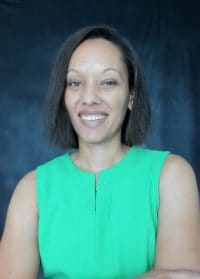
Elizabeth Hoo, PhD, MPH
Elizabeth Hoo, PhD, MPH is the Associate Director for Policy in CDC’s Office of Science. Dr. Hoo previously served as the Special Assistant (SA) to the CDC Principal Deputy Director (PDD) in the Office of the Director where she worked with internal and external partners on high-profile engagements, led the preparation of briefing materials, developed talking points, and oversaw the coordination of multiple high-profile events for the PDD including House and Senate briefings, engagement with the Congressional Black Caucus, and press conferences with POTUS and the HHS Secretary. Dr. Hoo was also instrumental in re-establishing the Advisory Committee to the Director (ACD) and supporting the Diversity and Inclusion Executive Steering Committee (DIESC) launch.
Prior to her role as a Special Assistant, Dr. Hoo served as the Winnable Battles Policy Lead in the Program Performance and Evaluation Office (PPEO) for four years. In this role, Dr. Hoo worked closely with CDC leadership, CIOs, and program subject matter experts (SMEs) to identify and implement Winnable Battle priorities and work with partner organizations such as the National Conference of State Legislators and the Association of State and Territorial Health Officials to identify opportunities for policy change to advance winnable battle priorities. Prior to becoming the Winnable Battles Policy Lead, Dr. Hoo served as an Account Manager in PPEO working with CIOs on program performance through processes such as the annual budget submission, Quarterly Program Reviews (QPR), Healthy People, GPRA, and PART.
Dr. Hoo is a graduate of the Public Health Prevention Service, under which she completed a two-year field assignment with the Kentucky Department for Public Health where she led the development and implementation of a lead abatement and healthy homes hazard reduction program for low-income families. Dr. Hoo received her PhD in Public Health from Walden University and her MPH from Armstrong Atlantic State University. Before joining CDC, she served eight years in the United States Army Reserve.
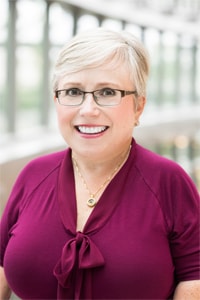
Juliana Cyril, MPH, PhD
Juliana Cyril, MPH, PhD, is Senior Advisor for Innovation and Extramural Research within CDC’s Office of Science. Dr. Cyril oversees the agency’s technology transfer portfolio, advises on innovation activities to accelerate public health science to action, and provides oversight and coordination of extramural research, Extramural Research Program Offices (ERPOs), functions, and associated policies and practices.
Prior to this, Dr. Cyril was the Director of the Office of Technology and Innovation within CDC’s Office of Science. Dr. Cyril was responsible for planning, managing, and evaluating the programs of the Office of Technology and Innovation. As a senior member of the Office of Science (OS) management team, Dr. Cyril participated in developing OS program policy and objectives, short and long-term goals, program strategies, and operating policies. Her office was responsible for providing leadership and expertise to promote and optimize the timely transfer of knowledge, innovation, and technology into products, devices and procedures that improve public health.
Dr. Cyril joined CDC in 2000 as a Health Scientist in the Division of Birth Defects and Developmental Disabilities, National Center for Environmental Health. In 2004, she joined the newly formed Office of Public Health Research (OPHR) in OS. Two years later, she became Associate Director Policy and Peer Review responsible for developing and promoting extramural research policies and practices across CDC. In this role, she was responsible for overseeing $20 million in research awards and was critical to CDC’s successful institutionalization of the Extramural Research Program Offices. In 2010, Dr. Cyril became the Deputy Director of the Office of Science Quality in OS responsible for managing office operations and acting as an advisor for extramural research throughout the agency. Two years later, Dr. Cyril assumed the role of Director of the Office of Technology and Innovation.
Dr. Cyril earned a Bachelor’s degree from the University of California, Berkeley. Prior to pursuing graduate studies, she worked for two years as a Research Associate in the Institute for Health and Aging at the University of California, San Francisco. Dr. Cyril earned her Master’s degree from the University of Washington in 1996 and a Doctoral degree from the Johns Hopkins University School of Public Health in 2001.
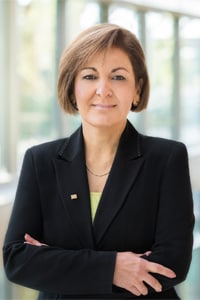
Maryam Daneshvar, PhD
Maryam Daneshvar, PhD, MS, is the Director of the Office of Public Health Ethics and Regulations in CDC’s Office of Science. Dr. Daneshvar is responsible for planning, managing, and evaluating the programs within OPHER, ensuring CDC science and research activities comply with scientific regulatory and ethical practices.
Dr. Daneshvar previously served as Associate Director for Science of the Division of Laboratory Programs, Standards, and Services in the Center for Surveillance, Epidemiology, and Laboratory Services (now part of the CDC’s Office of Laboratory Science and Safety). She has held other key leadership positions including CDC Reports Clearance Officer and Chief of the Information Collection Review Office in the Office of Science.
Dr. Daneshvar joined CDC in 1982 as a research chemist in the National Center for Infectious Diseases (). Over her 24-year tenure as a laboratory scientist, Dr. Daneshvar continued to specialize in advanced techniques for the identification of unusual and emerging bacterial pathogens. She authored or coauthored more than 100 publications including peer-reviewed scientific papers, CDC publications, a book, book chapters, and scientific meeting abstracts.
Dr. Daneshvar has received multiple CDC awards and the HHS Secretary’s Award for Distinguished Service. She has also received one of the most distinguished honors in the community of microbiologists – having an organism named in her honor. Kaistella daneshvariae, a novel bacterial organism, was named in honor of Maryam Daneshvar for her many contributions to the description and characterization of strains from CDC’s collection of clinical bacterial isolates.
Dr. Daneshvar holds a Doctorate degree in analytical chemistry and a Master of Science degree in clinical chemistry from Georgia State University, and a Bachelor of Science degree in biochemistry from the University of Georgia.

Amy Lansky, PhD, MPH
Amy Lansky, PhD, MPH, is Director of the Office of Scientific Evidence and Recommendations (OSER) within CDC’s Office of Science. In this role, Dr. Lansky oversees the Community Guide Program and the Guidelines and Recommendations Team, which provides agency-wide support for the development of high-quality guidelines and recommendations. As director of the Community Guide Program, she oversees the prioritization, production, and communication of evidence-based systematic reviews on the effectiveness and economics of public health programs, services, and other interventions. This includes supporting the Community Preventive Services Task Force (CPSTF), disseminating CPSTF recommendations and findings, and building and maintaining mutually beneficial relationships with partners.
Since joining CDC in 1991, Dr. Lansky’s achievements have included developing and evaluating behavioral interventions for HIV prevention, conducting epidemiologic research to inform HIV prevention programs and policy development, and designing and implementing surveillance systems. She served as deputy director for surveillance, epidemiology, and laboratory science in the Division of HIV/AIDS Prevention at CDC from 2008-2014. From 2015-2017 she served as director of the White House Office of National AIDS Policy and as senior policy advisor in the White House Office of National Drug Control Policy. Dr. Lansky has published more than 80 papers in peer-reviewed journals and CDC’s flagship publication, MMWR, about issues such as population size estimates for groups at risk for HIV, sampling methods for reaching populations at high-risk, and uptake of HIV prevention guidelines.
Dr. Lansky holds Doctoral and Master’s degrees in public health from the University of North Carolina at Chapel Hill, and a Bachelor’s degree in political science from Swarthmore College.
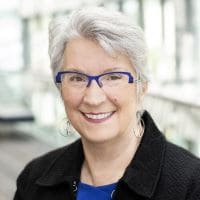
Charlotte Kent, PhD, MPH
Dr. Charlotte K. Kent, PhD, MPH, is the director of the Office of Science Dissemination (OSD) within CDC’s Office of Science. Dr. Kent is also Editor-in-Chief, Morbidity and Mortality Weekly Report (MMWR) Series, where she has applied her skills and experience in leadership roles for the “voice of CDC” since 2014. She has 30 years of experience directing the development, implementation, and evaluation of surveillance, epidemiologic, and health services research, and in managing public health programs at the local and federal level, including internationally. Her broad-based public health experience includes both infectious disease and chronic disease prevention and control.
During 2011‒2014, Dr. Kent served as Chief, Research, Surveillance, and Evaluation Branch, Division of Community Health, National Center for Chronic Disease and Prevention and Health Promotion where she supervised the design of complex evaluation studies and managed contracts and cooperative agreements valued between $35‒$42 million each year. She joined CDC during 2007, as the Chief, Health Services Research and Evaluation Branch, National Center for HIV/AIDS, Viral Hepatitis, STD, and TB Prevention where she focused on increasing research relevance and mentoring of students from under-represented populations. Dr. Kent’s previous experience includes serving as Chief, Epidemiology Unit, STD Prevention and Control Services at the San Francisco Department of Public Health for 15 years. During 1990-1991, she was the Director of the AIDS Epidemiology Unit for the Swiss Federal Office of Public Health in Bern, Switzerland.
Dr. Kent received her Doctorate in Epidemiology and her Master’s in public health in Biomedical Sciences from the University of California Berkeley, and her Bachelor of Arts degree in Anthropology from Amherst College. She has authored more than 115 published papers. The average citation per published paper is 59.0, with a high impact as measured by an h-index of 41. She and her teams have received numerous awards at CDC, including the CDC Director’s Award for Public Health Impact; the CDC & ATSDR Honor Award for Excellence in Quantitative Sciences; the Kaafee Billah Memorial Award, Honoring Excellence in Economic Research; and the Charles C. Shepard Science Award.

Bao-Ping Zhu, MD, PhD, MS
Dr. Bao-Ping Zhu, MD, PhD, MS is the Director of the Office of Science Quality and Library Services in CDC’s Office of Science.
Dr. Bao-Ping Zhu is a medical epidemiologist with extensive domestic and international experience in public health. He first joined CDC as an EIS officer in 1996 and since that time, has held multiple scientific leadership positions with CDC, state health departments, and other public health organizations. Prior to his most recent position as Director of Quality Performance Management and Research Programs at the National Association of Chronic Disease Directors, Dr. Zhu served as Resident Advisor for CDC’s Advanced Field Epidemiology Training Programs in Uganda, Turkey, and China. He has also served as the Missouri State Epidemiologist, CDC State Assignee in Michigan, and a Principal Research Scientist for the Battelle Memorial Institute.
Dr. Zhu has conducted extensive epidemiologic research on infectious diseases, chronic diseases, cancer, maternal and child health, environmental and occupational health, food intoxication, tobacco use, and neglected tropical diseases. He has authored more than 140 scientific publications.
Dr. Zhu received his medical degree from Anhui Medical University in China, Doctorate in epidemiology from the Chinese Academy of Medical Sciences and Peking Union Medical College, Master of Science degree in biostatistics from the University of Massachusetts, Amherst, and post-doctoral research training in epidemiology and biostatistics at the Institut National de la Santé et de la Recherche Médicale (INSERM) in France. He has received numerous awards for his research and service, including the CDC Director’s Award for Excellence in Epidemiology and Public Health Response, the William H. Foege Award, the Jeffrey P. Koplan Award, and the Young Professional of the Year Award by the American Public Health Association/MCH Section.
*Acting